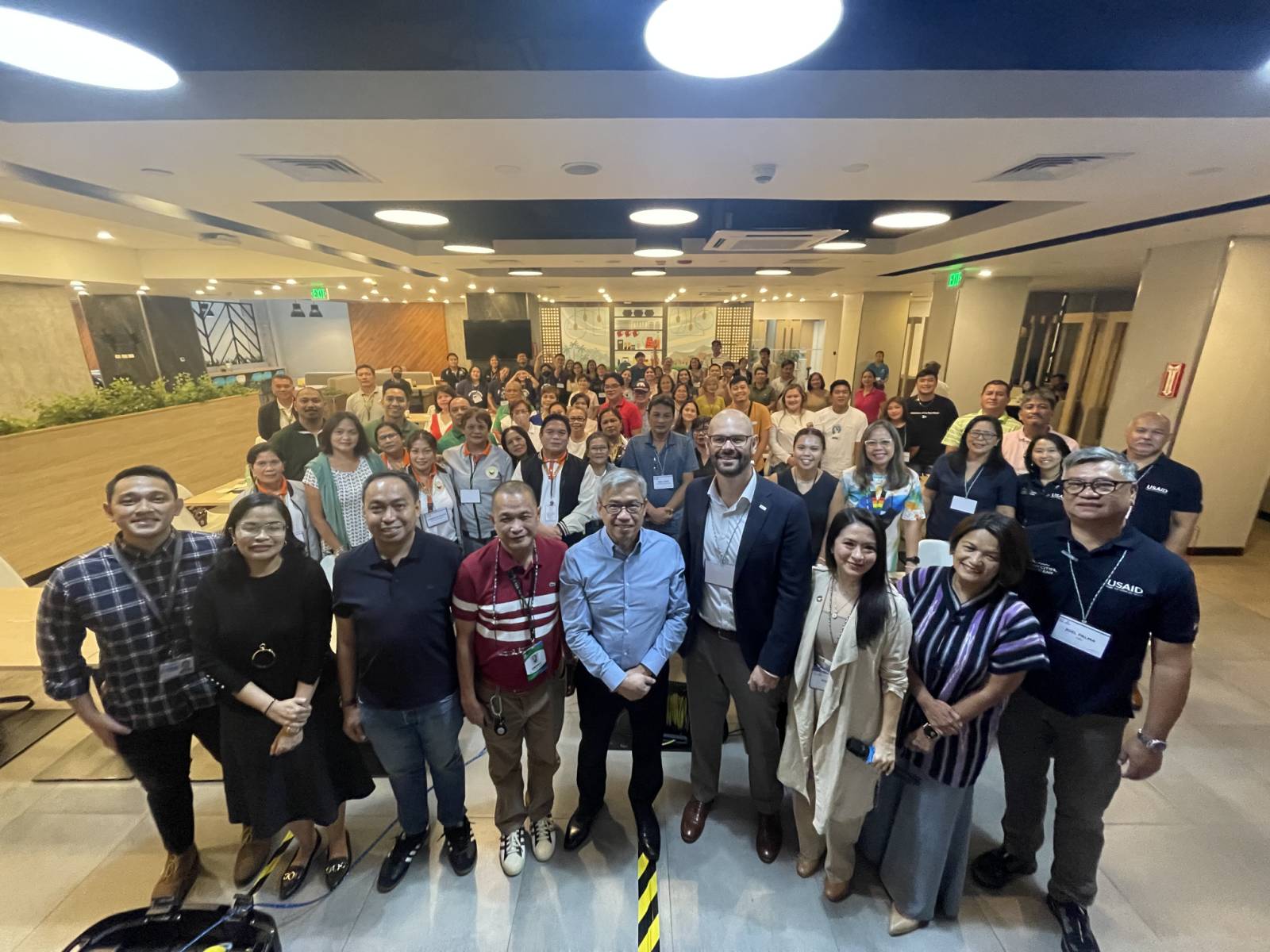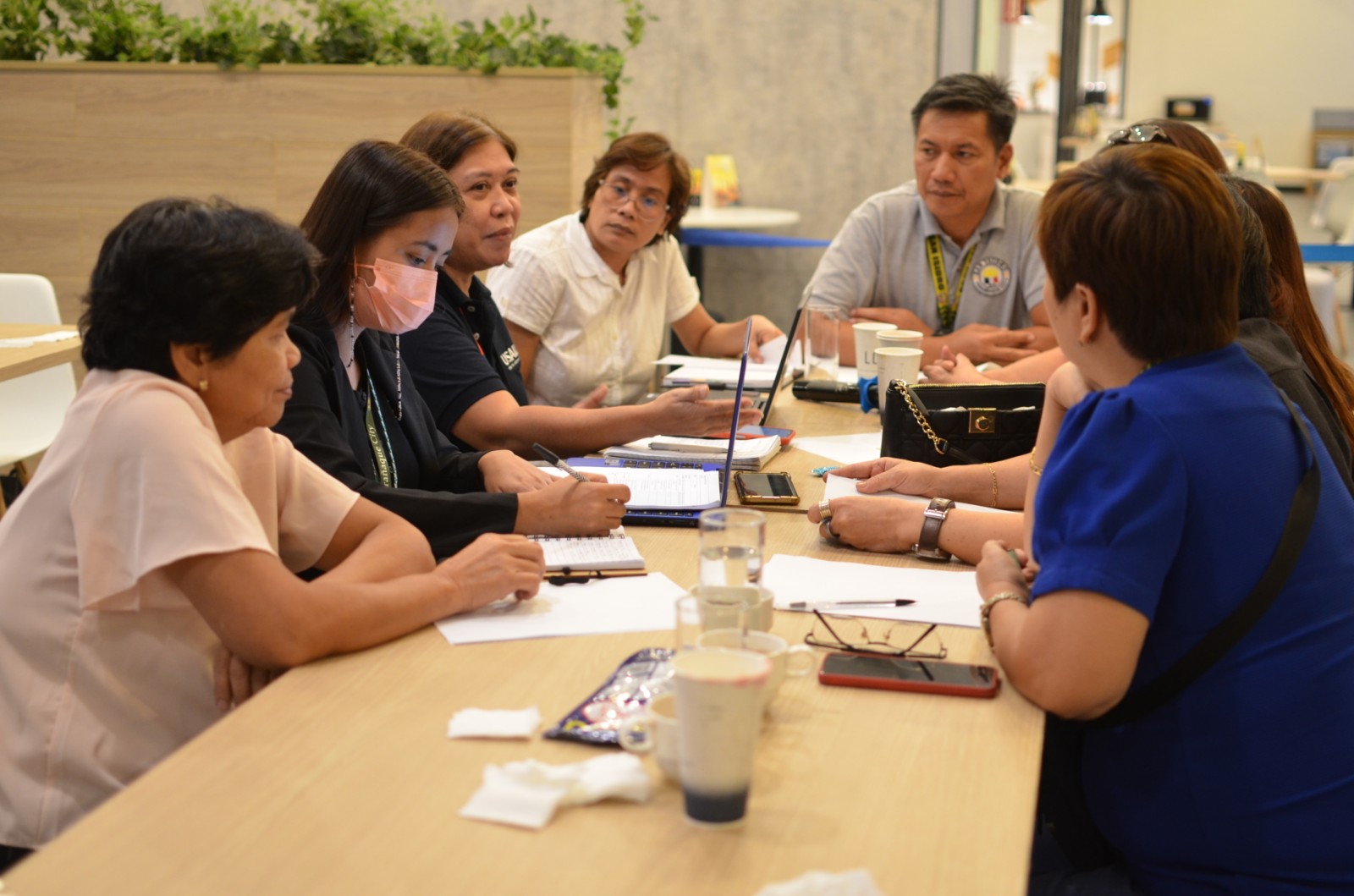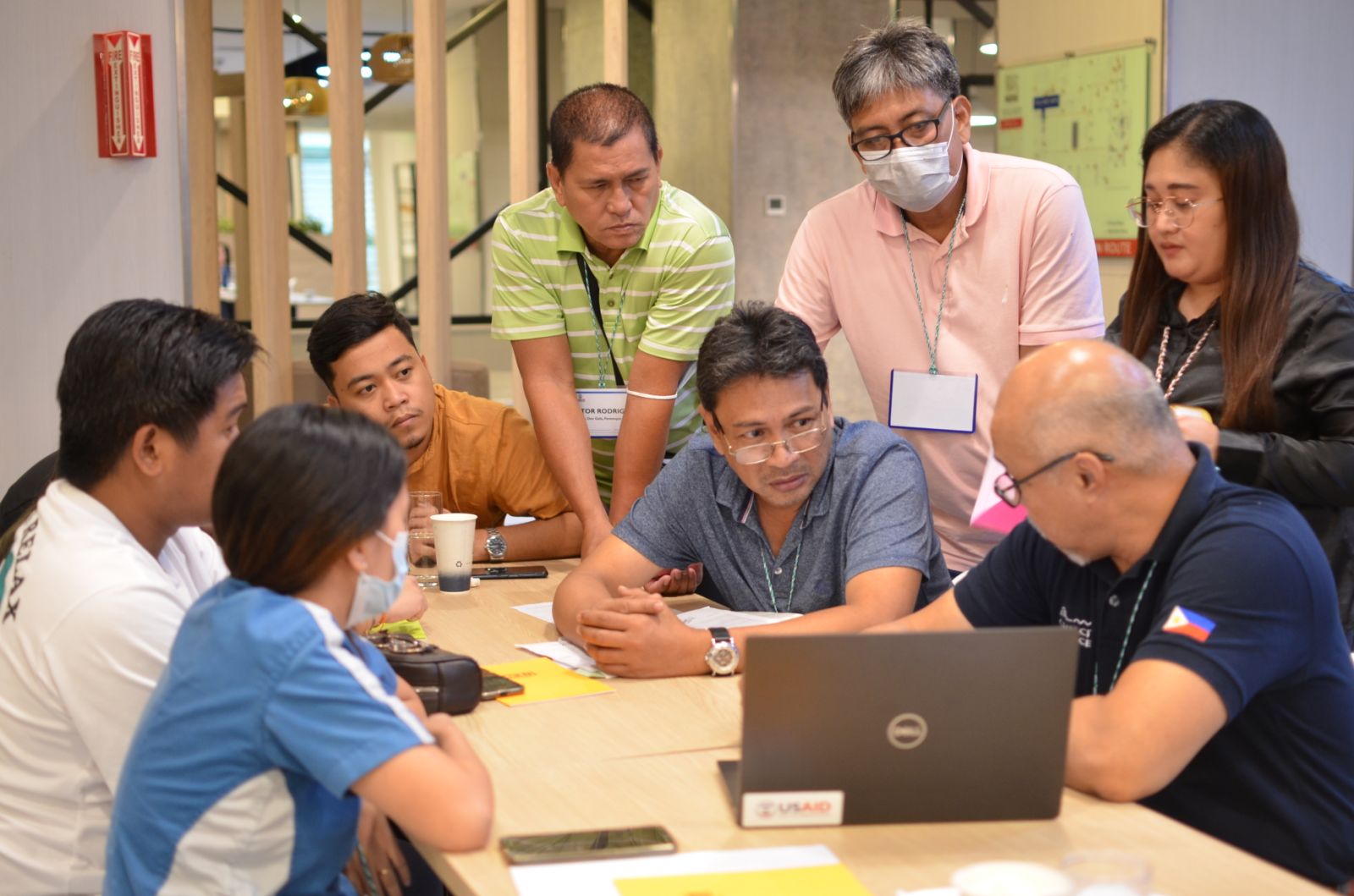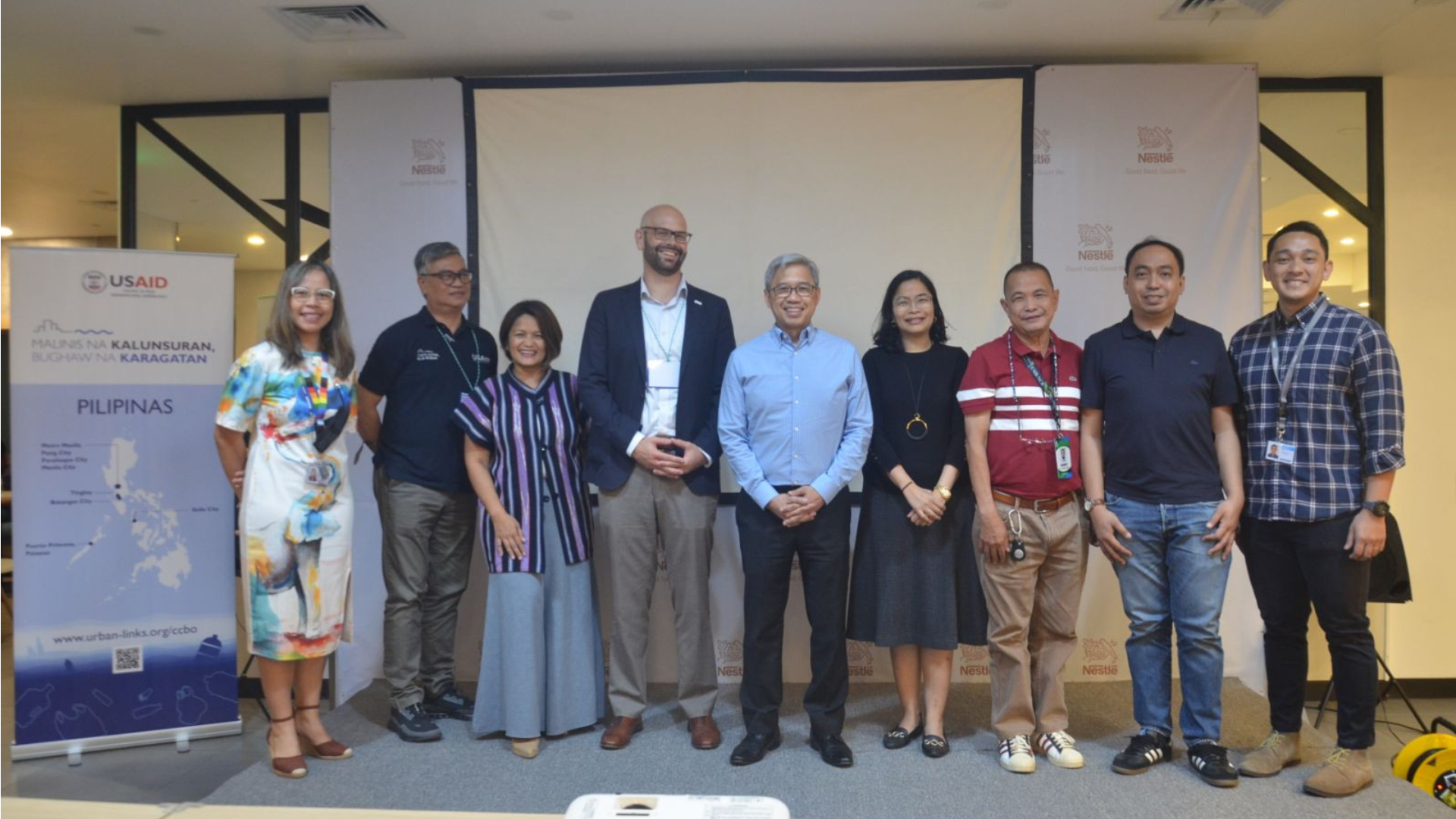U.S. Agency for Development (USAID), in partnership with Nestlé Philippines, strengthened the capacity of barangay government units on how to enhance their solid waste management (SWM) systems and be resilient to climate change. A two-day training on formulating barangay SWM Action Plans was held at Nestlé’s headquarters for five pilot barangays in Parañaque City and one of each of Nestlé’s host cities in Tanauan and Lipa, Batangas. Together with USAID, the training was co-facilitated by the Paranaque City Environment and Natural Resources Office (CENRO) and USAID’s Clean Cities, Blue Ocean grantee, Pure Oceans.

“Keeping our oceans free of plastic is essential for maintaining the natural beauty of the Philippines, helping to ensure sustainable fisheries and protect the livelihoods of millions of Filipinos, while also reducing the impacts of climate change,” said USAID, Philippines Environment Office Director, Ryder Rogers. “At USAID, we are pleased to work with Nestlé Philippines in partnership with barangay governments and local communities to help address and mitigate the impacts of ocean plastic pollution.”

In January 2022, USAID and Nestlé Philippines signed a memorandum of understanding to work together in enabling local government units and community leaders in the Philippines to educate communities on the link between climate change and solid waste management. Through USAID’s Clean Cities, Blue Ocean program and Nestlé’s Climate Change and Solid Waste Management initiatives, the goal is to increase communities’ access to education on the Ecological Solid Waste Management of 2000 (Republic Act No. 9003) and share practical tips on SWM.
“Nestlé Philippines is committed to tackling urgent issues of plastic waste and climate change through our groundbreaking and large-scale environmental initiatives,” said Jose Uy III, Nestlé Philippines’ SVP and Head of Corporate Affairs. “Through our partnership with USAID, we are able to help empower community leaders at the local level to progress toward a waste-free future.”

Ian Posadas, Assistant Barangay Secretary and Focal Person of the SWM Committee of Barangay Vitalez, Parañaque City, was one of the participants and he shared: “The 2-day training workshop is a big help for us. As the smallest barangay [in Paranaque City], we need to focus on the 3Rs – reduce, reuse, recycle – and the management of our waste. This plan will be like our lighthouse, or basis, for the next few years and to see if we are accomplishing the plans we have developed during today’s workshop.”
The plans drafted are for 2024-2026 but for Barangay Captain Lope Lina of Barangay Bagong Pook, Lipa City in Batangas, they plan to start early. “I decided that by August, we will start drafting an ordinance strictly implementing segregation so that the support of Nestlé and its partners to us will not be wasted.”
USAID launched the Clean Cities, Blue Ocean program in August 2019 as the agency’s flagship program to respond to the ocean plastics pollution crisis. The five-year (2019-2024), $53 million program works at the global level and in specific, rapidly urbanizing focal countries to address ocean plastics directly at their source.
By strengthening waste management systems and building circular economies, city by city, the program builds sustainable solutions that reduce ocean plastics while empowering vulnerable populations and mitigating pollution that affects human health and our climate.








